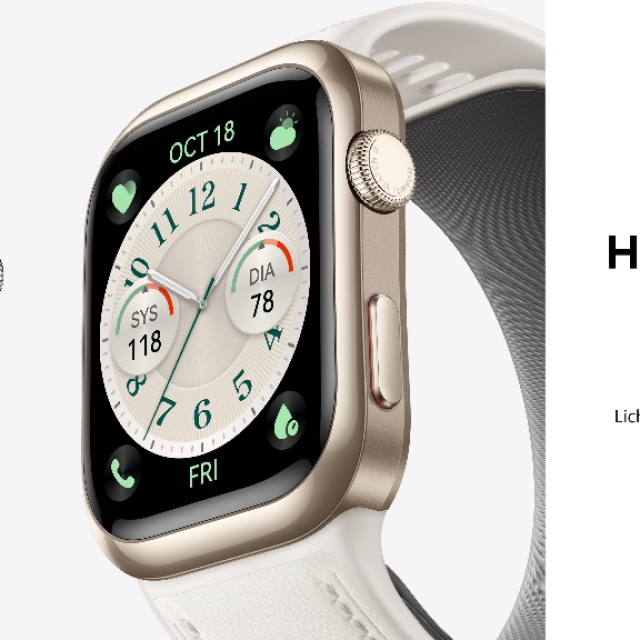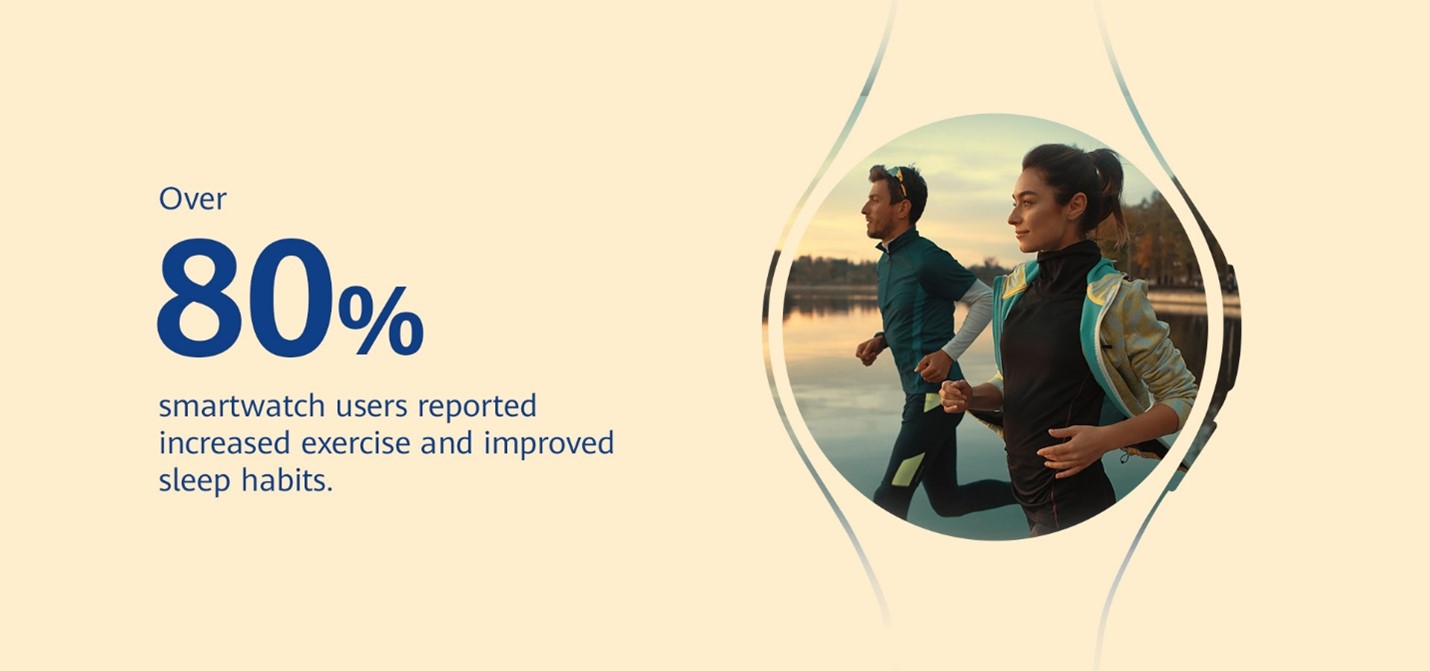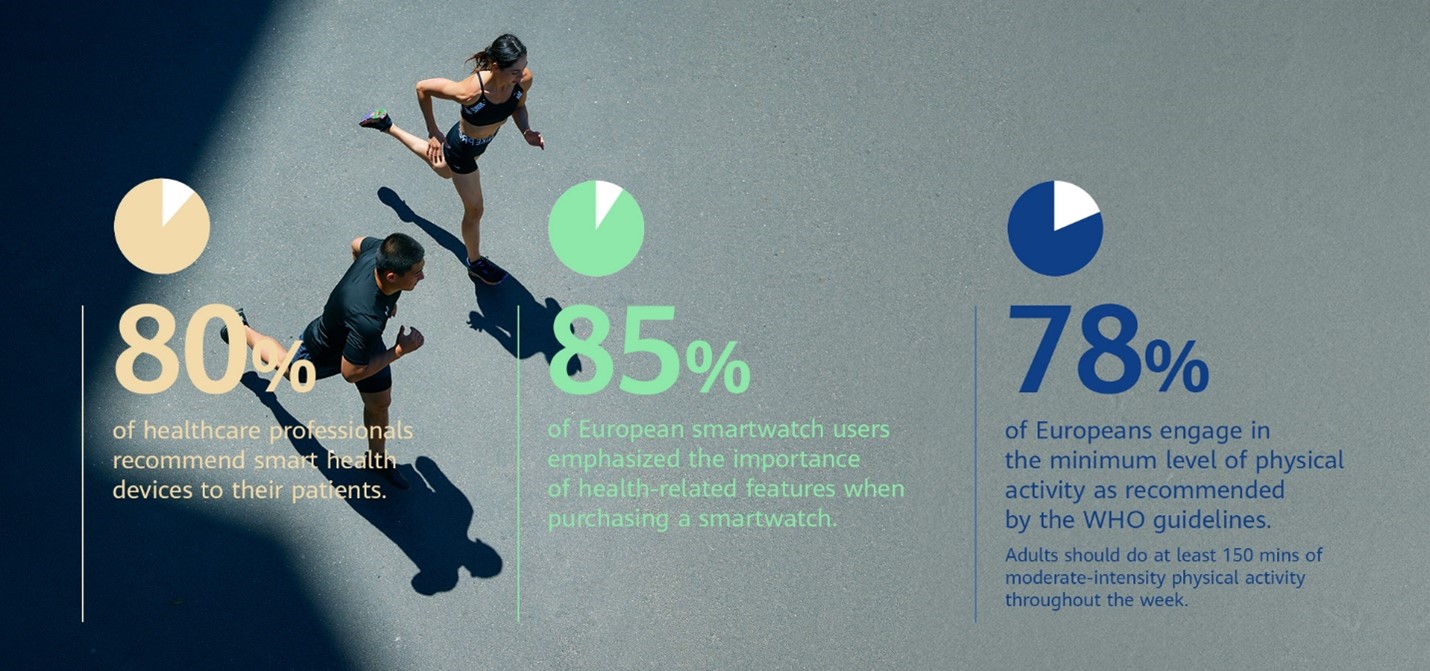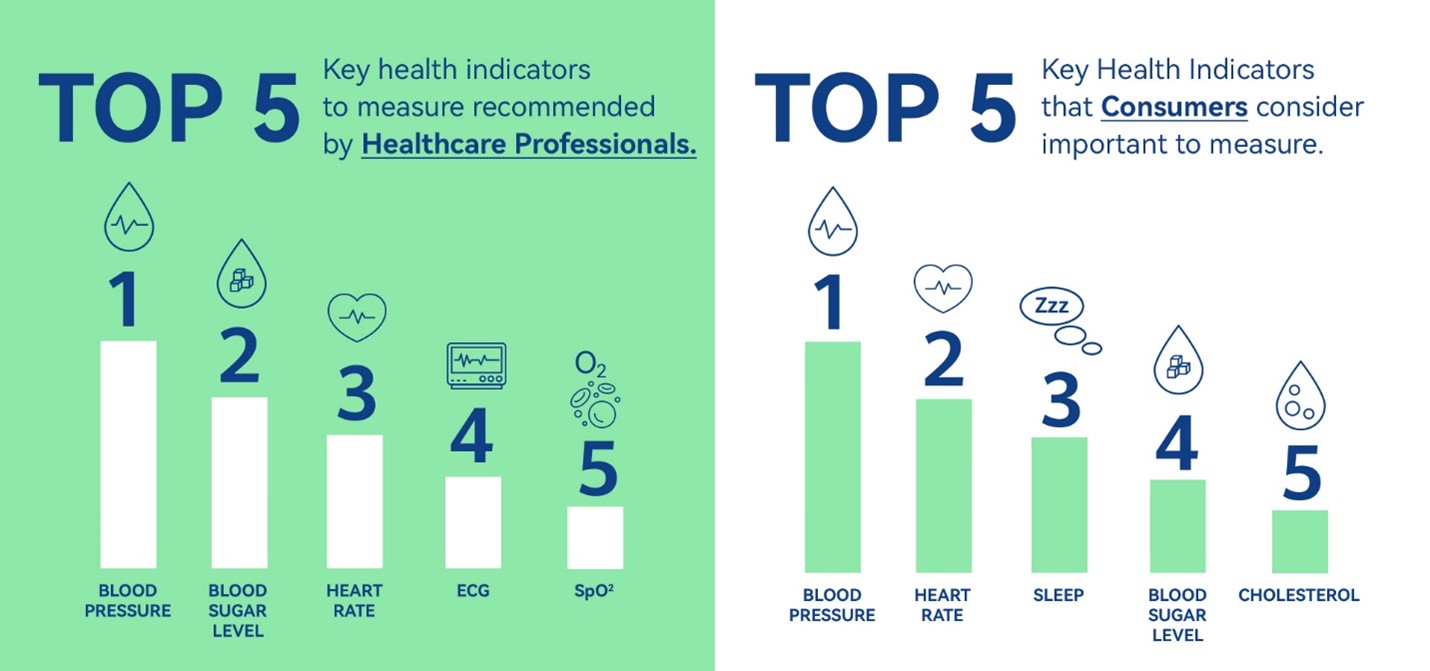
The European Health Survey 2025 shows that more than 80% of smartwatch users see positive changes in health, such as more physical activity and better sleeping habits. Read more here about why wearing smartwatches can be positive according to users and houseors.
In the month of April a major European online research was conducted in 8 countries*. From the results of this European Health Survey 2025, conducted by Ipsos on behalf of Huawei, there is a shift from passive health registration to active health management.
Smartwatch use increases health consciousness and behavioral change
The survey shows that a majority of Europeans (78%) see the connection between lifestyle choices and health, which indicates a growing awareness about proactive welfare management. Of the smartwatch users, 80% indicate that their behavior has been improved thanks to insights generated by the device. Regular monitoring of important health values has strengthened their commitment to movement and sleep optimization.
Main trends show transformation in European health behavior
The five most important health indicators that healthcare professionals (HCPs) find most important to monitor are: blood pressure, blood sugar, heart rate/wrist, oxygen saturation (SPO2) and electrocardiogram (ECG).
With a view to accessibility of health monitoring, HCPs are increasingly arguing for the use of wearables to improve healthcare. 80% of general practitioners recommend smart health devices in their patients, and 72% of the HCPs wish patients to handle their health more proactively and know what symptoms they should pay attention to.
(Text continues under the image)

Heart health and physical activity lead involvement in wearables
Physical activity is the most used health function among smartwatch users (68% check this daily), which confirms its importance in daily health routine. In addition, 78% of Europeans meet the minimum level of physical activity recommended by the WHO. Yet only 41% of Europeans set a daily step goal, with an average goal of 7,000-8,000 steps.
(Text continues under the image)

The increasing focus on heart health is in line with wider usage trends of smartwatches such as the Huawei Watch D2 and the Huawei Watch 5, where blood pressure and heart rate are among the most important health indicators. Heart rate and wrist monitoring are widely used: 53% of the European population checks these values daily. In addition, 46% of the respondents consider monitoring heart health as an essential function of a smartwatch. 85% of European smartwatch users emphasize the importance of health functions when purchasing their device.
Bridging the gap between priorities of consumers and professionals
While healthcare professionals mainly emphasize blood pressure, blood sugar and ECG, consumers prefer sleep monitoring, counting calories and hydration monitoring. With regard to the measurement frequency, the majority of HCPs recommend that patients measure their blood pressure (58%) and heart rate (53%) at least several times a week.
(Text continues under the image)

The recommendations of HCPs are partly in line with the perception of consumers about important health measurements: blood pressure is seen by 76% of Europeans as the most important health value, followed by heart rate/wrist. Blood sugar is in fourth place (72%), after sleep. A striking mismatch arises here between what the general population finds important and what doctors think is important: only 8% of doctors call sleep monitoring an important health measure.
Despite this gap, it is special that 93% of healthcare professionals already report consultations that have been scheduled in response to a report via a smartwatch. This points to a positive behavioral change among consumers towards a more conscious lifestyle, but also to growing confidence in health data from smart devices.
Future of wearables in health management
Despite the promising adoption rate, half of the Europeans still do not have a smartwatch or other wearable device, which means a great growth potential. While Wearables are gaining ground among people who actively measure health data to improve their well -being, the majority is limited to basic measurements, often due to a lack of knowledge or limited functionalities of older devices.
Health change marks new phase in European Welfare
Wearable technology redefines how Europeans deal with their health. By linking consumer needs to professional medical expertise, smartwatches are ringing a new era of well -being in – in which individuals take more control over their health and embrace technology as an aid.
With more than 80% of smartwatch users in Europe who actively improve their behavior, wearables have become essential instruments for proactive health optimization.
The European Health Survey 2025 convincingly shows that users of smartwatches are more aware of health and proactively monitoring key values. Although wearables are not a replacement for professional care, they strengthen healthy behavior. By building the bridge between self -monitoring and professional consultation, smartwatches can help people get a better grip on their well -being.
As wearables evolve from simple data collectors to meaningful health insights, they become more valuable for both users and professionals. Innovation in this sector is preparing to further change the way in which people monitor and manage their health – and to further strengthen trust between consumers and medical professional.
* Methodology: The data presented are based on an online study carried out in 8 countries: the United Kingdom, Germany, France, Poland, Spain, Romania, Bulgaria and Turkey between 02.04 – 25.04.2025. The investigation was conducted in a representative sample of approximately N = 1000 respondents per country between the ages of 18 and 64; The data is weighed on the basis of the population of people between 18 and 64 in each of the countries.